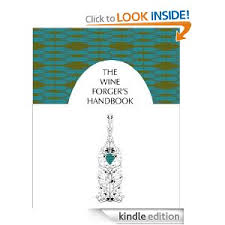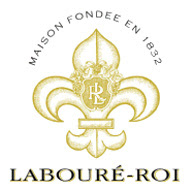by Wine Owners
Posted on 2015-02-10
It’s become apparent over the last few weeks and months that consumers who’ve already been taken advantage of by companies like European Fine Wines (EFW) are being targeted yet again with advance fee frauds and ‘White Knight’ scams.
What’s more, the cold-callers approaching those people who had previously bought from EFW seem to know an awful lot about their prior purchases. We can only presume that the EFW customer base was filched and passed around the London and Bromley wine underworld?
One of our members was approached recently by Rothstein Capital & Partners, who purported to be working in partnership with the receivers of EFW to assist former clients in recovering losses.
On that basis they offered to find buyers for her stock. The prices quoted were well ahead of market levels, for example £14k for her case of 2003 Latour (actual market price £6,500).
They then advised that the case of Latour 2003 she had received in 2013 had been misallocated, and that 'her' case was still held at the Chateau. She was told that she could not sell the case of Latour in her possession, as it did not bear her ‘log number’. She was told that her case needed to be exchanged for the correct case before they could proceed to sell it, and offered to arrange shipping of the 'correct' case from Bordeaux, provided she cover the insurance costs associated with shipping, which would cost £1,000 up front.
As reported in Jim Budd’s excellent resource on wine fraud, Investdrinks Blog, The liquidator, Nedim Ailyan of Abbott Fielding Limited, was understandably scathing of this advance fee fraud and according to Jim Budd of Investdrinks has reported Rothstein Capital to the police.
This isn't an isolated instance reported to us: another member was approached with a similar proposal, requesting that she pay for shipping fees plus a commission fee of £1,500 to get her wine to Hong Kong where it would sell at a premium.
EFW ex-customers are not alone in being targeted.
An elderly gentleman who had bought from Bordeaux Fine Wines previously, was contacted before Christmas with an offer to place wines for sale at auction in Hong Kong, again on the proviso that he pay £2,000 for shipping (and insurance). He was informed by the cold-caller – going by the name of Jay Kingsley - that his case of Montrose 2009 for which he’d paid £3K (at a time when it was worth no more than £1,500) would fetch £7,000 in Hong Kong due to heightened demand ahead of the Chinese New Year.
If you’ve bought from EFW or other cold callers from so-called wine investment companies, watch out for these scams, demand to know how the cold-caller got your information, and do not be taken in. Collect as much information as you can about the caller and their contact details, and report them to Jim Budd. Check the value of your wines on the Wine Owners website, and do let us know.
The bottom line is: if it sounds too good to be true, it will almost certainly be a scam.
by Wine Owners
Posted on 2013-04-04
Fine wine is a multi-million dollar industry and is fraught with peril. From fake bottles to fraudulent contents, from mislabelled wine to misled consumers, wine has been faked, forged, and used for fraud for as long as it has been consumed.
This eBook provides a brief history of forgery and fraud in the fine wine world, including case studies on Rudy Kurniawan and Hardy Rodenstock, and is available from Amazon for just £1.53, or free to borrow and read on the Kindle for 'Prime' users.

The Wine Forger’s Handbook also functions as a guide, both on how fraudsters have been found out, and tips on how to avoid being fooled in your own wine purchases.
Written by a pair of award-winning writers, wine expert Stuart George and best-selling art crime expert Dr. Noah Charney, The Wine Forger’s Handbook is a fun, informative, engaging read, and one which could potentially save you from making costly purchases of fake wine.
The Wine Forger’s Handbook is ideal for anyone from wine collectors to casual drinkers, or those who enjoy true crime stories of forgery, deception, and detection set against the vivid backdrop of the world of wine.
ABOUT THE AUTHORS
Noah Charney
Noah Charney is a professor of art history specialising in art crime and a best-selling author of fiction and non-fiction.
His books include the international best-seller novel The Art Thief; the best-selling Stealing the Mystic Lamb: The True Story of the World’s Most Coveted Masterpiece; The Thefts of the Mona Lisa: On Stealing the World’s Most Famous Painting; and the guidebook series Museum Time. He is editor of Art & Crime: Exploring the Dark Side of the Art World and editor-in-chief of The Journal of Art Crime, the first peer-reviewed academic journal in its field.
He is the founder of ARCA, the Association for Research into Crimes against Art, an international non-profit research group on art crime and cultural heritage protection (http://www.artcrimeresearch.org/). He teaches art history and art crime on the ARCA Postgraduate Certificate Program in Art Crime and Cultural Heritage Protection at American University of Rome and for Brown University.
He is a popular speaker and recently gave a TED talk on art crime, which can be viewed at http://www.youtube.com/watch?v=T897Foh5s0g. He is an award-winning columnist for numerous magazines, with regular columns in The Daily Beast (http://www.thedailybeast.com/features/how-i-write.html), Tendencias del Mercado del Arte, and ArtInfo (http://blogs.artinfo.com/secrethistoryofart/).
He encourages readers to join him on Facebook (https://www.facebook.com/NoahCharney) or through his website http://www.noahcharney.com/.
Stuart George
Stuart George is an independent wine consultant in London.
In 2003 he was awarded the UK Young Wine Writer of the Year. Stuart was co-author of The Wine Box (2005), picture editor and leading contributor to 1001 Wines You Must Try Before You Die (2008), and editor of the award-winning The Finest Wines of Tuscany and Central Italy(2009) and The Finest Wines of Champagne (2009).
Stuart has contributed to publications on five continents, including The Daily Telegraph, Fine Wine International, Fine Wine & Liquor, Meininger’s Wine Business Monthly, Sommelier Journal, The Tasting Panel Magazine and the Times Literary Supplement.
He is a sought-after show judge and has been a jury member at wine competitions in Austria, Brazil, Chile, China, France, Luxembourg, Portugal and Spain. He has worked harvests in France, Italy and Australia.
His website and blog is at http://www.StuartGeorge.net/. He can be followed on Twitter at @sdgeorge1974.
by Wine Owners
Posted on 2012-06-15
Several directors of Labouré-Roi, the Nuits-St.-Georges negociant, have been arrested following a year's investigation by the French Fraud Squad (DGCCRF).
For several years, since 2005 through 2009, Labouré-Roi been accused of consumer fraud; systematically mis-labelling burgundies from village wines through to Grand Crus, blending juice inappropriately, and making false claims about fictitious competition medals.
Labouré-Roi is Burgundy's 3rd largest negociant by volume, and the fraud affects 2,000,000 bottles.

Quatre dirigeants de la maison de négoce en vins de Bourgogne Labouré-Roi, basée à Nuits-Saint-Georges (Côte-d'Or), ont été placés en garde à vue la semaine dernière dans le cadre d'une affaire de fraude sur les vins, a-t-on appris mercredi 13 juin auprès de leur avocat. Il leur est reproché des faits de "tricherie sur les étiquettes", des "mélanges de vins" et l'utilisation de "fausse médailles", selon le quotidien Le Bien Public qui a révélé l'affaire.
Does this spell the end of the Famille Cottin's ownership of the long-standing Maison founded in 1832 and acquired by them in 1974? Le Monde quotes the company's Counsel as fearing the worst if banks refuse borrowings following the scandal that has made headlines in France.
As Burgundy buzzes with interest & growing sales from China, stories of grand-scale fraud are the last thing the BIVB (Bureau Interprofessionel des Vins de Bourgogne) needs after all its excellent work educating Far Eastern buyers on the value ofClassification and micro-climats.

